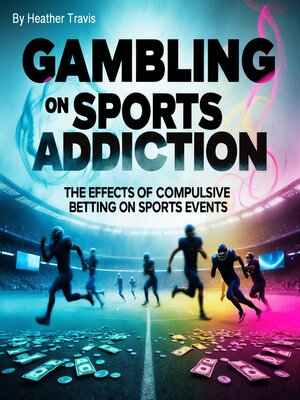Gambling on Sports Addiction
audiobook (Unabridged) ∣ The Effects of Compulsive Betting on Sports Events
By Heather Travis

Sign up to save your library
With an OverDrive account, you can save your favorite libraries for at-a-glance information about availability. Find out more about OverDrive accounts.
Find this title in Libby, the library reading app by OverDrive.



Search for a digital library with this title
Title found at these libraries:
| Library Name | Distance |
|---|---|
| Loading... |
This audiobook is narrated by a digital voice.
The intersection of sports fandom and gambling has created one of the most rapidly growing and potentially dangerous forms of addictive behavior in modern society. Sports gambling addiction represents a unique subset of gambling disorder that combines the passionate emotional investment of sports fandom with the neurochemical rewards of gambling, creating a perfect storm for the development of compulsive betting behaviors. Unlike traditional casino gambling, sports betting carries the illusion of skill and knowledge, allowing individuals to believe they can gain an edge through research, analysis, and expertise about their favorite teams and athletes.
The explosive growth of sports betting has been unprecedented in recent years, driven by widespread legalization, sophisticated mobile platforms, and aggressive marketing campaigns that have normalized betting as an integral part of the sports experience. What was once confined to illegal bookmakers and offshore websites has become a mainstream activity promoted by major sports leagues, broadcast networks, and celebrity endorsers. This normalization has created an environment where betting on sports is presented not as gambling, but as a natural extension of sports fandom and a way to enhance the viewing experience.
The psychological appeal of sports betting differs significantly from other forms of gambling in ways that can make it particularly addictive. Sports fans already possess deep emotional connections to teams, players, and outcomes, creating a foundation of investment that gambling can exploit and amplify. The belief that sports knowledge can provide an advantage over the house creates an illusion of control that does not exist in pure games of chance like slot machines or roulette. This perceived skill element attracts individuals who might otherwise avoid gambling, including highly educated professionals who believe their analytical abilities give them an edge.







